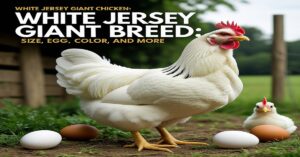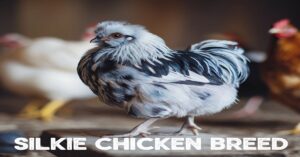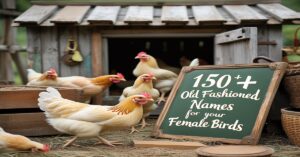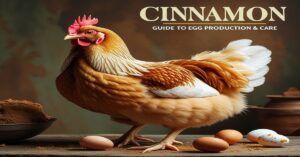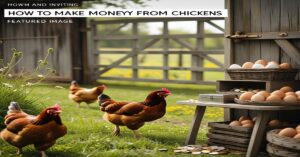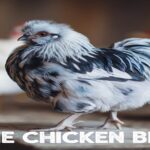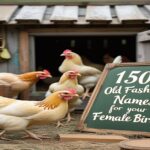Easter Egger chickens have rapidly become one of the most beloved breeds among backyard poultry keepers. Known for their unique and vibrant egg colors, friendly personalities, and hardiness, these chickens are a great addition to any flock. Whether you’re looking to add a splash of color to your egg basket or simply want a docile and easy-to-care-for breed, the Easter Egger chicken is an excellent choice.
In this comprehensive guide, we’ll dive deep into the characteristics, history, care requirements, and more, providing everything you need to know about the Easter Egger chicken breed.
Here’s a table summarizing the key facts and figures about Easter Egger Chickens:
| Fact | Details |
|---|---|
| Average Weight (Roosters) | 5 lbs (approx. 2.27 kg) |
| Average Weight (Hens) | 4 lbs (approx. 1.81 kg) |
| Average Lifespan | 5–8 years |
| Egg Production | ~200+ eggs annually |
| Egg Color | Blue, Green, Pink (varies by genetics) |
| Temperature Hardiness | Cold-hardy, withstands moderate heat (requires shade and ventilation in hot climates) |
| Coop Space (Indoor) | At least 2–3 sq. ft. per chicken |
| Coop Space (Outdoor Run) | 8–10 sq. ft. per chicken |
| Nesting Boxes | 1 box per 3-4 hens |
| Broody Nature | Low – Easter Eggers are not typically broody |
| Meat Production | Moderate meat yield (not a primary meat breed, best for egg production) |
| Noise Level | Moderate – Roosters crow, hens are relatively quiet |
| Temperament | Docile, friendly, family-friendly, good with children |
| Health Risks | Susceptible to respiratory issues, parasites, and calcium deficiency |
| Common Genetic Traits | Pea comb, red/white ear coloring, small wattles, four toes |
| Egg Color Variety | Can lay a mix of blue, green, and sometimes pink eggs depending on genetics |
Introduction to Easter Egger Chickens
The Easter Egger chicken is a mixed breed, often referred to as a “hybrid,” that is particularly famous for its colorful eggs. They are not a recognized breed by major poultry associations like the American Poultry Association but are a popular choice for backyard chicken keepers due to their striking appearance, hardy nature, and ability to lay eggs in shades of blue, green, and even pink.
While Easter Eggers are often mistakenly confused with Ameraucanas or Araucanas, they are distinct breeds with their own unique characteristics. One of the key differences is that Easter Eggers are typically a mix of various chicken breeds, which results in their wide variety of looks and egg colors.
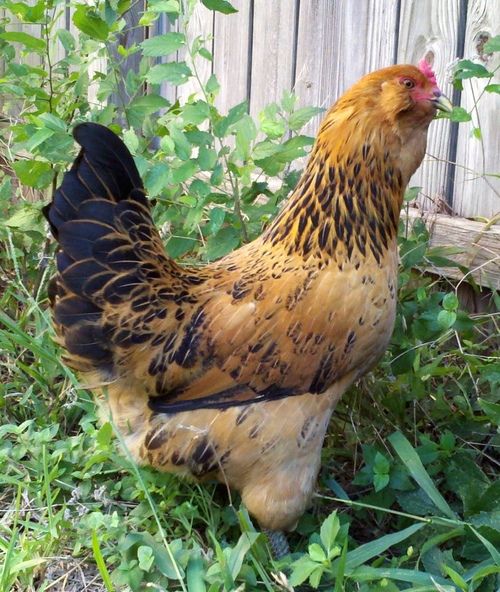
History of the Easter Egger Chicken
The Easter Egger chicken has a fascinating history. Their roots can be traced back to South America, where chickens such as the Araucana and Ameraucana originated. These chickens were known for their ability to lay blue eggs, and the Easter Egger was developed by mixing these breeds with others to create a hardy, adaptable bird that could thrive in various climates.
- 1930s: Araucanas were first recorded in the U.S. and were celebrated for their blue eggs.
- 1970s: The Ameraucana breed gained popularity, known for its blue egg-laying ability and hardy nature.
- Easter Eggers emerged as a more accessible hybrid, allowing poultry enthusiasts to enjoy the blue egg-laying trait without having to own a purebred.
Are Easter Egger Chickens a Heritage or Hybrid Breed?
Easter Eggers are best categorized as a hybrid breed. Unlike heritage breeds, which have been selectively bred for many generations to maintain specific traits, Easter Eggers are a mix of various chicken breeds. This hybrid nature allows for a wider range of physical traits and egg colors, but it also means that Easter Eggers do not have the standardized genetics of a purebred chicken.
The key difference between heritage vs. hybrid breeds is that heritage breeds have a stable genetic pool and are typically slower to mature, whereas hybrids like Easter Eggers are often bred for specific traits like egg production and adaptability.
Easter Egger Chicken Appearance
Easter Eggers are known for their striking appearance, which can vary greatly depending on their genetic makeup. While there is no standard for their appearance, some common traits include:
- Feather colors: A mix of black, brown, red, white, or even blue feathers.
- Comb type: They often have a pea comb, though single combs are also common.
- Ear lobes: Typically red or white ear lobes.
- Legs: Many Easter Eggers have bare legs or lightly feathered legs, similar to Ameraucanas.
Their appearance is part of what makes them so charming. You can have Easter Eggers in a variety of colors, including both solid and multi-colored patterns.
How Much Do Easter Egger Chickens Weigh?
Easter Eggers are a medium-sized breed. The average weight varies slightly between hens and roosters:
- Roosters: Typically weigh around 5 lbs (2.27 kg).
- Hens: Generally weigh about 4 lbs (1.81 kg).
This size makes them manageable for small-scale or urban farming, and their sturdy build ensures they can withstand various weather conditions.
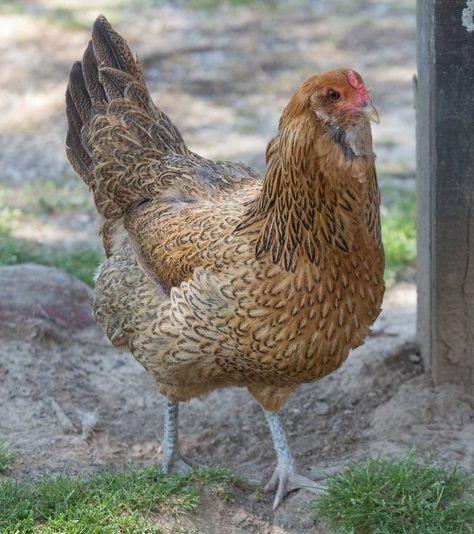
Lifespan of Easter Egger Chickens
The lifespan of an Easter Egger chicken typically ranges between 5 to 8 years. However, with proper care, some have been known to live even longer. Several factors can influence their lifespan, including:
- Genetics: The genetic diversity of Easter Eggers contributes to their resilience, helping them avoid some of the common health issues that plague purebred chickens.
- Diet and care: Ensuring your chickens receive proper nutrition, including a balanced diet with adequate calcium for egg production, can help extend their lives.
- Health management: Regular vaccinations, parasite control, and general health maintenance also contribute to a longer, healthier life.
Easter Egger Egg Color and Production
One of the most unique aspects of the Easter Egger is its ability to lay colorful eggs. Their eggs can be blue, green, and even pink, which adds a fun and aesthetic touch to any egg basket.
- Blue eggs are the most common and are a hallmark of the breed.
- Green and pink eggs can also be laid, depending on the chicken’s genetics.
Easter Eggers are relatively good layers, typically producing around 200+ eggs annually, though this can vary depending on their diet, environment, and age. They lay medium to large-sized eggs with smooth, hard shells that are great for eating or baking.
How Many Eggs Do Easter Egger Chickens Lay?
Easter Eggers are not the most prolific egg layers compared to commercial breeds, but they still offer reliable production. On average, they will lay about 4 to 5 eggs per week, which amounts to approximately 200 eggs per year. Their egg-laying can be influenced by factors such as:
- Seasonal changes: In the winter months, egg production may slow down, as Easter Eggers can be sensitive to changes in light and temperature.
- Age: Younger chickens tend to lay more frequently, while older hens may reduce egg production.
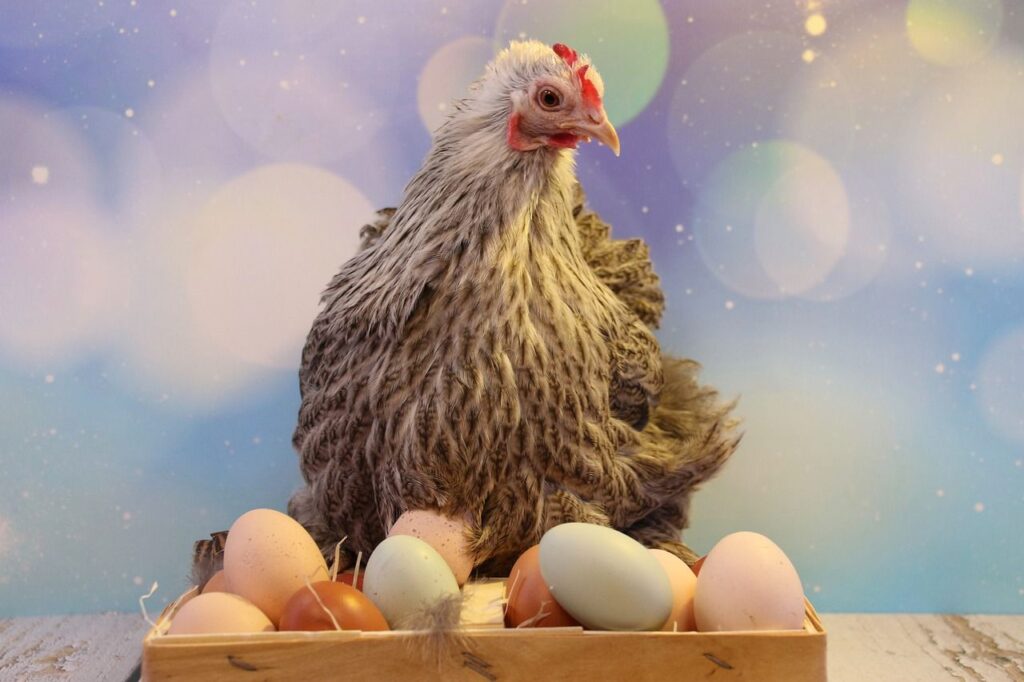
Breeding Easter Egger Chickens
Breeding Easter Egger chickens can be a rewarding but challenging endeavor. Due to their hybrid nature, the offspring may not always exhibit the same traits as their parents. If you’re looking to breed Easter Eggers, it’s essential to understand the genetics behind their egg color and other characteristics.
- Genetics of egg color: The blue egg gene is dominant, so if you want to breed for blue eggs, both parents should ideally carry this gene.
- Health considerations: As with any breeding program, maintaining a focus on health and genetics is critical to ensure strong, disease-resistant offspring.
Are Easter Egger Hens Broody?
Easter Egger hens are not particularly known for being broody, which is when hens want to sit on their eggs to hatch them. This is a beneficial trait for chicken keepers who are interested in maximizing egg production. However, some hens may still go broody under certain conditions.
If you are interested in hatching eggs, you may want to look for specific hens that exhibit broody behavior, or consider using an incubator for a more controlled process.
Are Easter Egger Chickens Hardy?
One of the standout features of Easter Eggers is their hardiness. Thanks to their diverse genetics, they tend to be adaptable to a wide range of climates. They can tolerate both cold and hot temperatures, making them a great option for chicken keepers in various regions.
- Cold resistance: Easter Eggers can handle cold winters, though they should still be provided with a draft-free coop and plenty of bedding to keep them warm.
- Heat resistance: They can also handle the heat, but make sure they have access to shade and plenty of water during hot summer months.
Common Health Risks of Easter Egger Chickens
Like all chickens, Easter Eggers are prone to certain health risks, but their hybrid nature makes them relatively resistant to many common poultry diseases. Here are some health concerns to keep in mind:
- Calcium deficiency: Easter Eggers, like all laying hens, need plenty of calcium to produce strong eggshells. Be sure to provide them with oyster shell or calcium supplements.
- Parasites: Regular deworming and parasite control are essential for maintaining their health.
- Respiratory issues: Like all chickens, Easter Eggers can be susceptible to respiratory diseases if their coop is poorly ventilated.
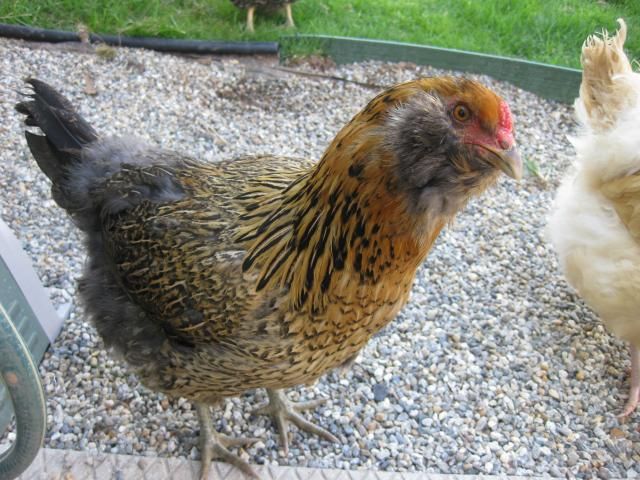
Meat Production with Easter Egger Chickens
While Easter Eggers are primarily known for their egg production, they can also be used for meat production. However, they are not as large or as meaty as other breeds like Cornish Crosses, which are specifically bred for meat. Easter Eggers are better suited for small-scale farming or as dual-purpose birds.
- Meat quality: Easter Egger meat is generally flavorful, though it may not yield as much meat per bird compared to more commercial meat breeds.
- Slaughtering age: Easter Eggers can be processed at about 16–20 weeks for optimal meat quality.
Are Easter Egger Chickens Noisy?
Easter Eggers are relatively quiet compared to other chicken breeds. While they do make noise, especially when laying eggs or alerting the flock to something, they are not known for being excessively loud. This makes them a good choice for urban farming or if you live in an area with noise restrictions.
Temperament and Behavior of Easter Egger Chickens
Easter Eggers are well-loved for their friendly disposition and docile personality. They are typically very child-friendly and enjoy human interaction. Their calm nature makes them an excellent choice for families or beginners who are new to raising chickens.
- Social behavior: Easter Eggers generally get along well with other chickens and tend to be peaceful within the flock.
- Handling: Their friendly nature also makes them easier to handle, even for younger children or first-time chicken owners.

Housing Requirements for Easter Egger Chickens
Easter Eggers require a safe and secure coop to keep them safe from predators and the elements. When setting up your coop, make sure to consider the following:
- Space: Provide at least 2–3 square feet per bird inside the coop and 8–10 square feet per bird in the run.
- Nesting boxes: Easter Eggers will need a nester box for egg-laying. One box for every 3–4 hens is usually sufficient.
- Roosting bars: Install roosting bars that are at least 2 feet off the ground to give your chickens a place to sleep.
Are Easter Egger Chickens Right for You?
In conclusion, Easter Egger chickens make an excellent choice for those looking for a friendly, hardy, and colorful egg-laying breed. With their unique appearance, reliable egg production, and good temperament, they are perfect for small-scale, urban, or beginner poultry keepers.
However, it’s important to understand that they are hybrids, meaning their appearance and egg colors can vary. Make sure to assess your needs and consider whether the Easter Egger’s personality, egg production, and housing requirements align with your goals as a chicken keeper.
By keeping these factors in mind, you’ll be well on your way to successfully raising Easter Eggers and enjoying their colorful eggs and delightful personalities for years to come.
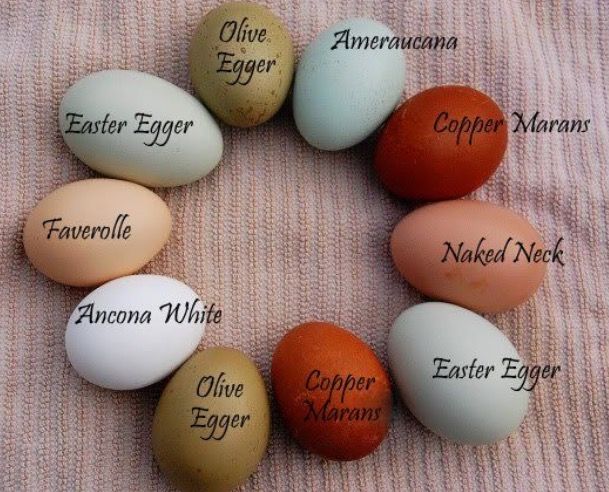
FAQs
How to breed an Easter Egger?
To breed Easter Eggers, pair blue and green egg-laying hens with blue egg gene-carrying roosters, resulting in offspring that typically lay colorful eggs.
Are Easter Eggers good for beginners?
Easter Eggers can be a great choice for beginners, especially if you don’t need to handle them frequently, as they are independent but curious.
What breed makes an Easter Egger?
Easter Eggers are hybrids, typically bred from Araucanas, known for their blue eggs, and other brown egg-laying chickens.
What age do Easter Eggers start laying?
Easter Eggers generally start laying eggs between 4-6 months of age, with some beginning as early as 3 months or as late as 6 months.
What is the lifespan of an Easter Egger chicken?
With proper care, Easter Eggers typically live between 5 to 8 years and remain productive throughout their lives.
What do Easter Eggers eat?
Easter Eggers can eat the same feed as other chickens in your flock, with no special dietary requirements.
Are Easter Eggers friendly?
Easter Eggers are generally friendly, especially with children, and can be good family pets despite their independent nature.
What is the real name of an Easter Egger chicken?
Easter Eggers are mixed-breed chickens, often crossed with Araucanas or Ameraucanas, producing a range of egg colors and feather patterns.
What is the most common Easter Egger egg color?
Easter Eggers typically lay blue, green, or sometimes pink eggs, depending on their specific breeding.
Why has my Easter Egger stopped laying eggs?
A decrease in daylight is a common cause of reduced egg production, as hens need at least 16 hours of light to maintain regular laying.
Are Easter Eggers heat tolerant?
Easter Eggers handle heat well and continue to lay eggs throughout the summer, as long as they have shade and proper ventilation.
Do Easter Eggers have beards?
Many Easter Eggers have beards and ear muffs, which are common traits inherited from the Araucana breed, though it can vary.
At what age do Easter Eggers lay eggs?
Easter Eggers typically begin laying eggs between 20 to 24 weeks of age, though this can vary slightly depending on the individual.
How friendly are Easter Eggers?
Easter Eggers are known for their friendly nature, often enjoying being around people and sitting on laps for attention.
Are Easter Eggers sexed?
Sexing Easter Eggers can be tricky due to their mixed breed, but characteristics like comb size and feather patterns can help differentiate males from females as they grow.
What age do Easter Eggers start crowing?
Roosters typically begin crowing at about 4-5 months, around the same time they mature into adult chickens.
What are the interesting facts about Easter Egger chickens?
Easter Eggers are unique for their colorful eggs, which can range from blue and green to pink, and the egg color remains consistent throughout their life.
Read more knowledgeable blogs on Flowy Magazine

James Clair is a passionate writer and researcher with a deep fascination for animal behavior and its intricate connection to human life. With a background in [relevant field of study, e.g., zoology, psychology, ethology], James has spent years studying the natural world, focusing on how animals’ actions and instincts impact human emotions, behavior, and society.
His expertise in [specific topics or regions of focus, e.g., canine psychology, animal communication, wildlife conservation] has led to numerous published works and collaborations with renowned researchers and institutions. Through his work at Flawy Magazine, James aims to bridge the gap between scientific research and public understanding, offering insightful, accessible articles that explore the complex relationship between humans and animals.
When he’s not writing, James enjoys [personal hobbies or interests, e.g., hiking in nature, volunteering at animal shelters, photography] and is an advocate for [cause or charity related to animals or conservation]. His mission is to inspire readers to see animals not just as companions or creatures of the wild, but as beings whose behavior holds valuable lessons for us all.


